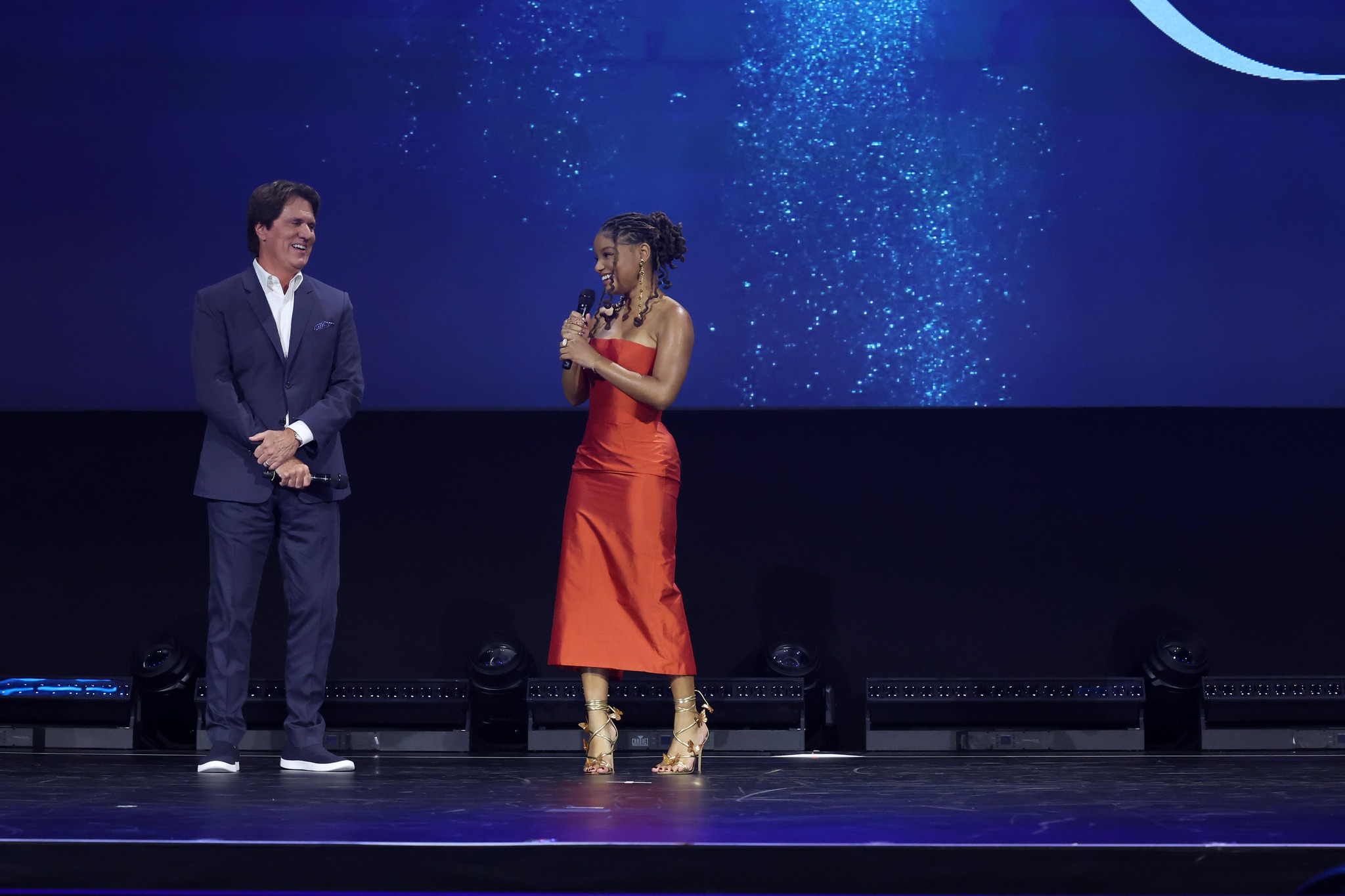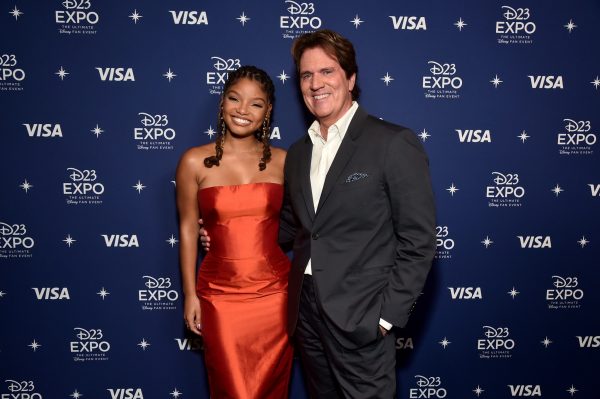
Film Critic Caitlin McGraw discusses divided opinions towards Halle Bailey’s casting in The Little Mermaid
Content warning: This article discusses themes of racism.
Generating over 100 million views across online platforms, the teaser trailer for Disney’s latest live-action remake of The Little Mermaid, has been long awaited. The 1 minute 24 second clip has over 2 million dislikes on YouTube, suggesting that not the first visual snippet is not popular with every fan. What has provoked so much controversy and upset? Graphic violence? Inappropriate language? Sexualisation? No – people are upset by the colour of the protagonist’s skin.
The question is: why is there backlash against a children’s movie which is tangled in culture wars of racism and misogyny?
In 2019, director Rob Marshall announced actress and Grammy-nominated singer Halle Bailey had been cast as Ariel, the fictional Disney Princess at the centre of The Little Mermaid, for her “rare combination of spirit, heart, youth, innocence, and substance — plus a glorious singing voice — all intrinsic qualities necessary to play this iconic role”. She is also African American, and this casting split opinions.
Fast forward three years, the recent trailer revived debate about whether Ariel should be played by a black actress when she has appeared as white in previous instalments, such as the 1989 animated Disney classic of the same name. #NotMyAriel trended on Twitter, with one disgruntled user photoshopping a white woman’s face onto Bailey’s to voice disapproval. The question is: why is there backlash against a children’s movie which is tangled in culture wars of racism and misogyny?
Disney’s original adaptation was based on the fairy tale The Little Mermaid, written by Danish author, Hans Christian Andersen. The story is about a mermaid (not named Ariel) who dreams of exploring beyond the ocean, yet her father forbids human contact. After seeing a handsome prince, she makes a deal with an untrustworthy sea witch to become a human that is capable of falling in love to fulfil her fantasy. The story’s themes of unrequited love and sacrifice were sanitised in the 1989 animated film, which is the tale that many adult Disney fans associate with their childhood and regard as an authentic depiction of Andersen’s tale.
this sentimentality has been hijacked by fans who want original stories left alone for more sinister and discriminatory reasons
There are legitimate reasons to dislike a trailer, such as musical choices and visual effects. No plot or character is going to please every viewer. Some arguments have suggested that Disney are too focused on rebooting classic films into live-action versions, rather than producing new stories written by modern scriptwriters, as seen in recent releases of Cruella, Aladdin, and The Lion King. This formula achieves box office success by appealing to childhood nostalgia, however, this sentimentality has been hijacked by fans who want original stories left alone for more sinister and discriminatory reasons. Much of the online backlash to Halle Bailey’s casting was influenced by right wing and conservative arguments that are prevalent in the U.S, demanding that Ariel must remain Caucasian in the name of scientific, historical and cultural accuracy. Examples include claims that mermaids are strictly a European mythological figure and must be portrayed as white, theories that melanin in skin pigment cannot develop underwater, and that casting a black actress is an attempt to erase Ariel’s white-skinned and redheaded image.
Not only have these arguments been debunked as pseudo-scientific and flawed, but they expose a thin veil covering the racism and misogyny that is rooted in hateful backlash against this fictional, children fairy-tale. Jodi Benson, who voiced Ariel in 1989, defended Bailey alongside other Hollywood figures and people of colour. Videos of Black children watching the trailer, overjoyed to discover that a Disney princess would be played by a Black actress, went viral to highlight the value of casting representative actors in Disney films. Bailey added that her intention for playing Ariel was to inspire “little girls just like me to know that they’re special.”

Backlash targeted at writers and production companies in Western film and television culture appears to be a growing trend, with some fans demanding loyalty to original stories to prevent people of colour being cast in reboots. Recent TV adaptations of The Lord of the Rings and Percy Jackson books faced similar reaction for including non-white characters in white dominated stories, as well as complaints about diverse characters in Marvel, Star Wars and Ghostbusters films.
To understand this reaction, wider society must be inspected. The right-wing nature of the backlash to The Little Mermaid and other forms of entertainment dragged into culture wars by certain political subcultures, indicates that racism embodies scepticism of ‘forced diversity’ and Disney’s non-discrimination casting policy fitting within Hollywood’s ‘woke agenda’.
By weaponizing Halle Bailey’s casting within these culture wars, the representation of young black children is deemed superficial and undeserving. British franchises such as James Bond and Doctor Who have also been involved in conservative culture wars against wokeness regarding casting rumours of traditionally white, male characters, indicating the sinister side-effects of appealing to nostalgia for profit when diversity supposedly threatens the stories people know and love.
By weaponizing Halle Bailey’s casting within culture wars, the representation of young black children is deemed superficial and undeserving
Overall, the suitability of an actor cast in a particular role should not be determined by reductive statements regarding appearance but rather the merit of performance. Following Marshall’s praise, it appears Halle Bailey has been cast as this mythical mermaid for her talent and therefore deserves the role which fans can judge when this controversy -tainted film is released. The debate will inevitably be revived, with some fans boycotting the movie and others watching as an act of anti-racist pushback.
However, popular culture will continue to be weaponized to fit political narratives opposing diversity and masking discrimination as valid criticism. Despite this cycle of backlash, incorporating the perspectives of women and people of colour can act to improve representation in the entertainment industry, empower new audiences and reduce the dependency on rebooting existing stories. After all, who wants to see the same film we’ve seen before?
The Little Mermaid is expected to be released in May 2023.
For more on Disney, check out these articles from Redbrick Film:
Comments